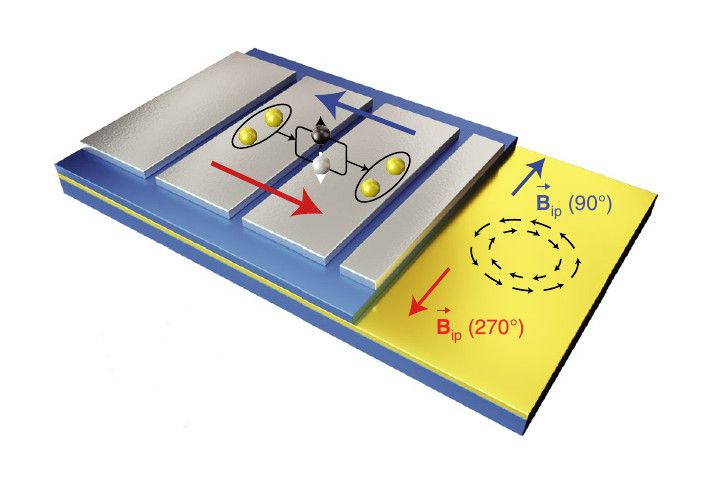
Nature Nanotechnology
Transport is non-reciprocal when not only the sign, but also the absolute value of the current depends on the polarity of the applied voltage. It requires simultaneously broken inversion and time-reversal symmetries, for example, by an interplay of spin–orbit coupling and magnetic field. Hitherto, observation of nonreciprocity was tied to resistivity, and dissipationless non-reciprocal circuit elements were elusive. Here we engineer fully superconducting non-reciprocal devices based on highly transparent Josephson junctions fabricated on InAs quantum wells. We demonstrate supercurrent rectification far below the transition temperature. By measuring Josephson inductance, we can link the non-reciprocal supercurrent to an asymmetry of the current–phase relation, and directly derive the supercurrent magnetochiral anisotropy coefficient. A semiquantitative model explains well the main features of our experimental data. Non-reciprocal Josephson junctions have the potential to become for superconducting circuits what pn junctions are for traditional electronics, enabling new non-dissipative circuit elements.
https://www.nature.com/articles/s41565-021-01009-9
SFB 1277
Doris Meier
Universität Regensburg
Phone: +49 (0) 941-943 2264
Email: SFB1277.Office@ur.de